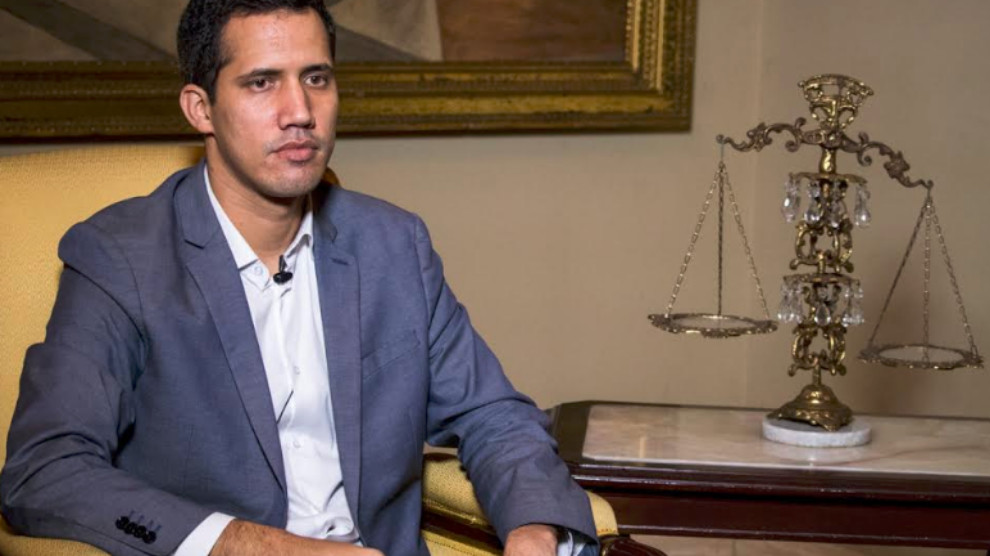Suspicion of corruption on self-proclaimed president Guaidó
Suspicion of corruption surrounds Juan Guaidó, the Venezuelan opponent who proclaimed himself President "in charge”.
Suspicion of corruption surrounds Juan Guaidó, the Venezuelan opponent who proclaimed himself President "in charge”.

The corruption scandal, revealed by the PanAm Post portal, has implicated two of its most close collaborators, Rossana Barrier and Kevin Rojas, commissioned by the opposition leader to attend the material and economic needs of some 700 military deserters and their families (more than 4,000 people in total) in Colombia.
Juan Guaidó self-proclaimed "President in charge of Venezuela", against any Constitutional Law, was subsequently ratified by a Legislative Assembly declared "in rebellion" by the Supreme Court of the South American country.
The open US support for Guaidó led to recognition in some two weeks by 50 States, setting a disastrous precedent in the international arena, while the President legitimate country, Nicolás Maduro, continued to count on the consent of the other 140 governments that are part of the United Nations.
From the moment of his self-proclamation Guaidó has carried out several attempts to overthrow by force the Government of Venezuela, including a threat of a military coup, without achieve its goals despite the open support of the US, the EU and the so-called Group of Lima (composed of 12 countries in the region).
The current accusations of corruption involving the opposition leader immediate surroundings can end his presidential ambition. The two accused, members of their own Popular Will party, were singled out in reports of the General Directorate of Intelligence of Colombia as authors of appropriation and misappropriation of funds for an amount not yet determined, but amounting to several million dollars.
Guaidó, in an attempt to cover his possible responsibilities, suspended the accused from ‘all jobs’ while requesting an investigation into the facts from the Colombian Prosecutor's Office and instituted a so-called "comptroller general" to oversee the numerous Venezuelan bank funds, located in some foreign countries, placed at their disposal by several of the government that recognized it as the US, Canada and the majority of the EU.
The soft exonerations of Guaidó preceded by a few minutes the announcement by the Prosecutor General of Venezuela, Tarek William Saab, who said he was opening a criminal investigation against him, and a dozen of his closest collaborators (several of them deputies), under accusation of embezzlement of public funds and corruption.
The Attorney General pointed out that the funds stolen by several of the governments that recognized it have made available to Guaidó and "they are being administered without any transparency". Saab affirmed in his press conference that the accused in Colombia "are the material authors, but Guaidó is the intellectual author."
For its part, the Minister of Communication of Venezuela, Jorge Rodríguez, was much more explicit in what refers to the political connotations of the scandal when he said: “Voluntad Popular wants to be the only one stealing, that's the reason why the opposition is divided."
Discontent among the Lima Group (especially Colombia) and the United States was difficult to disguise. Their "chosen" man to overthrow the Government of Venezuela is accused with serious and well-founded suspicions of corruption. Precisely what Guaidó said he wanted to fight.
The two open legal processes, one in Colombia and the other in Venezuela itself, added to the uneasiness that has generated among its sponsors and their failures in the attempt to take power by force, seem to mark a possible end of the improvised leadership of Guaidó.
Meanwhile, 700 Venezuelan military deserters and their relatives have been abandoned to their fate in Colombia, without economic means for their subsistence and without any other perspective than to try and survive, as if they were a modern version of "Rome does not pay traitors", something that does not seem to encourage other Venezuelan military to follow their example.